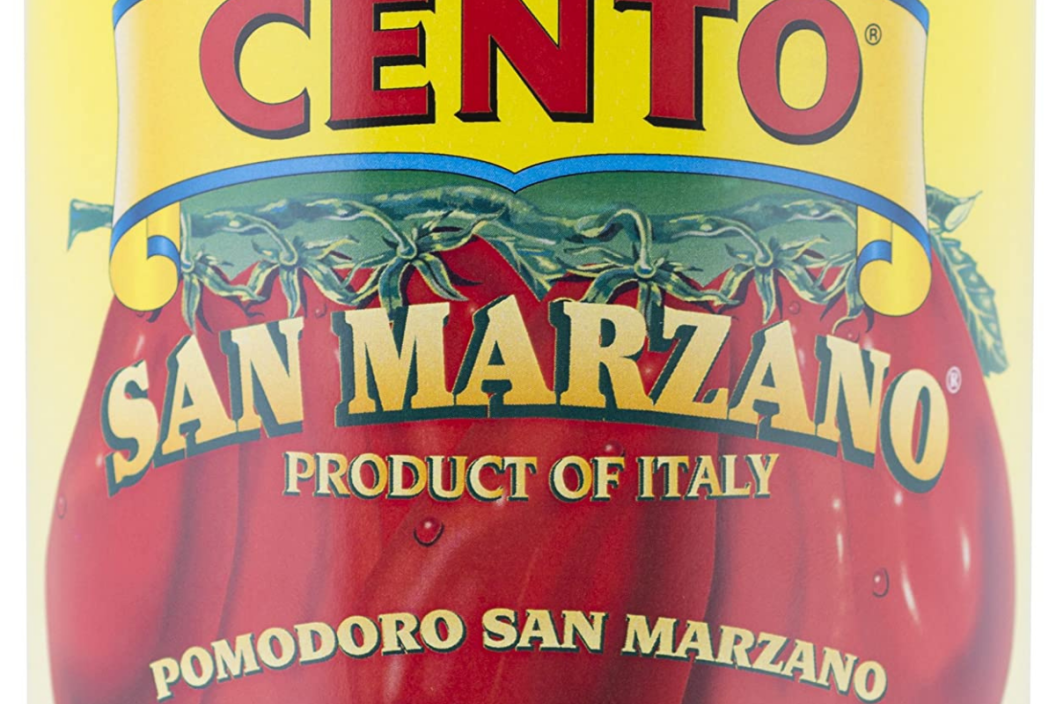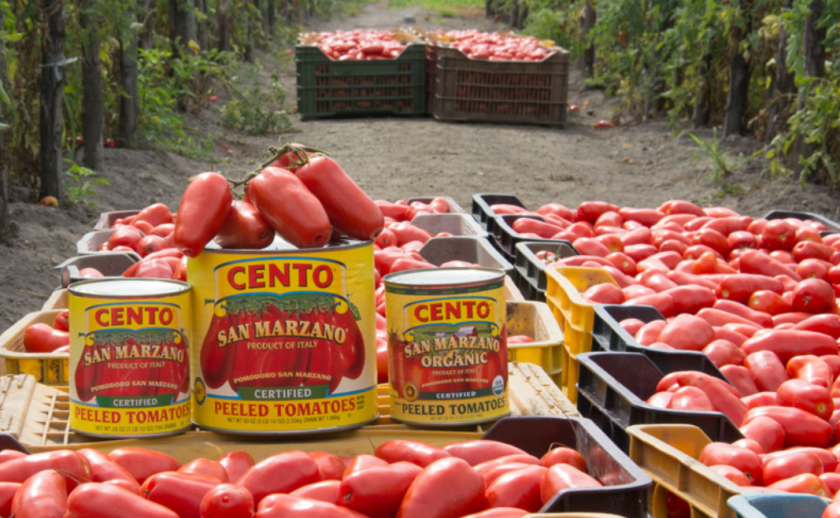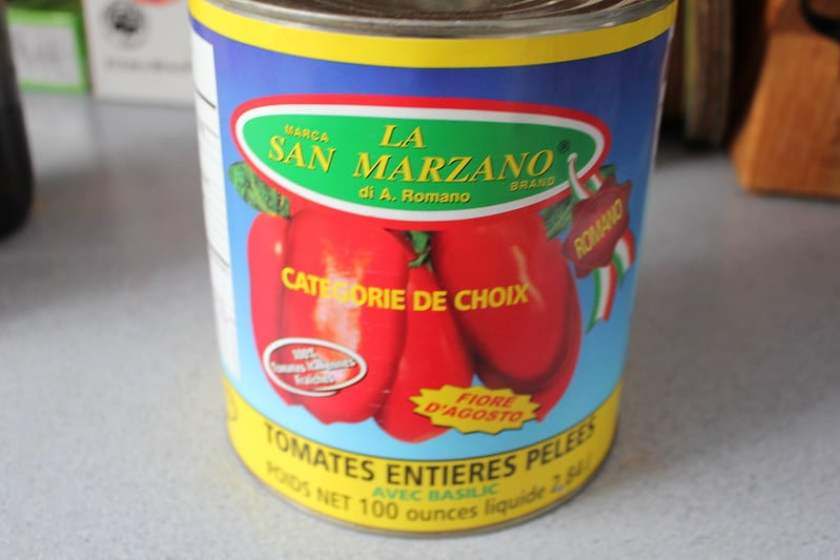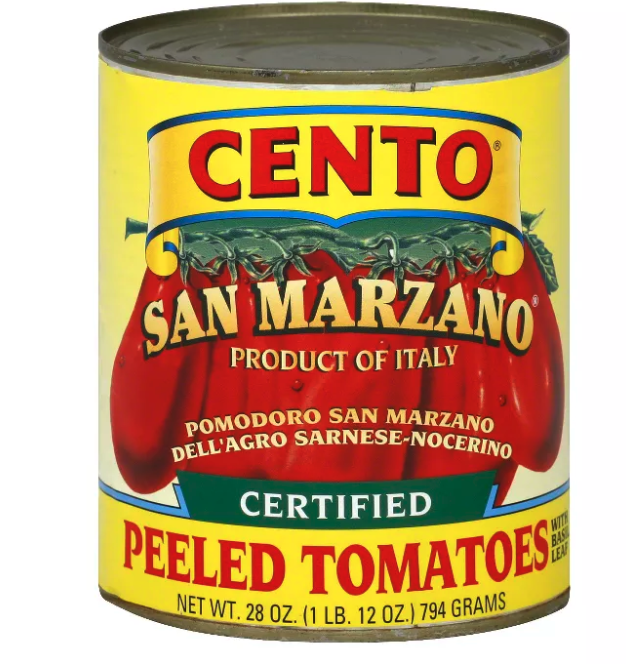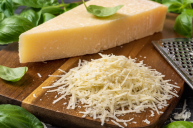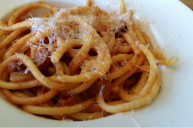You've probably seen them on the grocery store shelves or had recipes specially ask for San Marzano Tomatoes - but what the heck is so special about these canned tomatoes to give them a price tag above the rest? Many a home cook swears by San Marzano, but there's an ugly secret lurking in those San Marzano brand cans: Those San Marzano tomatoes might be fake.
Considered the most famous plum tomato from Italy, certified San Marzano tomatoes are grown at the base of Mount Vesuvius near Naples in rich volcanic soil. This nutrient-dense soil gives them the sweet flavor and low acidity making them the perfect tomato to make sauces with. In fact, it's the only tomato used for a traditional Neapolitan pizza. These tasty tomatoes are named after the town they originated in, San Marzano Sul Sarno, in the Campania region of southern Italy.
San Marzano tomatoes are special for many reasons that go beyond even the soil they're grown in. Along with having a deliciously sweet flavor from the nutrient-dense soil at the base of Mount Vesuvius, they have far less sodium than your average American tomato. They also contain no calcium chloride, which American processors often use to help tomatoes maintain their shape.
These unique tomatoes are so special that they have an official status as a "protected designation of origin, or D.O.P. (Denominazione d'Origine Protteta). Because they have such an incredible flavor and are so high-quality, it's best to use San Marzano Tomatoes for recipes that will truly allow you to enjoy their flavor.
On the Cento San Marzano Tomatoes website, they recommend using these delicious tomatoes to make your own marinara. Their flavor is said to go perfectly with fresh mozzarella cheese, making for a Margherita pizza that's to die for. San Marzano Tomatoes are also ideal for soups, seafood and baked pasta, or a Bloody Mary if you're feeling boozy. Since these tomatoes are so special (and expensive), it's important to know if the tomatoes in the can or real, or if these San Marzano tomatoes are fake.
How to Tell If Your San Marzano Tomatoes Are Real
Much like how Champagne can only be called champagne when grown in the Champagne region in France, San Marzano tomatoes must be grown in the Agro Sarnese-Nocerino region of Italy to be called such. When the tomatoes are canned, they are required to have a DOP emblem on the label to symbolize their authenticity.
However, unlike how organic produce is regulated, there is no regulation of goods noted with DOP in the United States. Which means that companies can add a DOP label to any can of tomatoes and call it San Marzano, as Taste reports. In fact, back in 2011 the President of Consorzio San Marzano told Italian importing company, Gustiamo that about 5 percent of tomatoes sold in America are real San Marzano tomatoes. Which means there are a lot of fake San Marzano tomatoes out there.
True San Marzano tomatoes are only sold whole or as fillets and they are always sold as peeled tomatoes. If you notice a can of chopped or diced, it's a fraud, even when it's in those fake San Marzano cans.
You can also tell if it's a real can of San Marzano tomatoes when looking at the bottom of the can and it contains a DOP seal and a Consorzio San Marzano certification number. Without those two things, you are just buying a normal can of tomatoes at a higher price.
We recommend buying your real deal canned San Marzano tomatoes from a brand like Cento, who actually labels the exact date and location where the tomatoes were grown.
Just pop on the site, enter your four-digit code from the can labeling, and find out which farm your tomatoes came from.
Cento San Marzano Peeled Tomatoes
Looking for Italian tomatoes? Look no further. Cento San Marzano tomatoes are available at Walmart and Amazon.
Editor's Note: Products featured on Wide Open Country are independently selected by our editors. However, when you buy something through our links, we may earn a commission.
